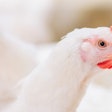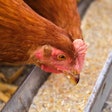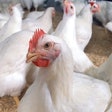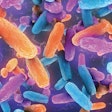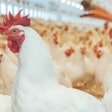
The U.S. Food and Drug Administration (FDA) has sent warning letters to two feed mills that did not adhere to Current Good Manufacturing Practice (CGMP) requirements for medicated feed mills.
Gilman Co-Op Creamery in Gilman, Minnesota and Farmers/Ranchers Cooperative Association of Ainsworth in Ainsworth, Nebraska, each mixed horse feed containing monensin, a drug approved for use in cattle, swine and poultry but highly toxic and potentially lethal to horses.
FDA said the two feed mills did not adhere to the CGMP requirements for medicated feed mills and are also subject to FDA’s Preventive Controls for Animal Food regulations. The medicated feed CGMPs require firms to conduct appropriate sequencing or adequate equipment cleanout procedures when switching from mixing a medicated animal food to a non-medicated one. These regulations are designed to prevent unsafe cross-contamination between medicated feed and non-medicated feed or other medicated feed.
Last summer, FDA said it was investigating Gilman Co-Op Creamery after six horses died after consuming feed mixed by the mill. FDA found that the mill mixed cattle feed containing monensin on the same day that it mixed the special-order horse feed. FDA said the facility did not perform adequate cleanout of the equipment after mixing the cattle feed to prevent the drug from being mixed into the horse feed, which it mixed after the cattle feed.
Farmers/Ranchers Cooperative Association of Ainsworth recalled horse feed in November 2017 and swine feed in May 2018 after samples collected and tested by the Nebraska Department of Agriculture revealed that the horse feed contained monensin and a swine feed contained chlortetracycline, a new animal drug; however, both feeds were labeled as non-medicated. An FDA inspection in May 2018 also documented significant deviations from CGMP regulations for non-licensed medicated animal food manufacturers, including the failure to investigate and take corrective action after being notified of the state laboratory results finding monensin in the horse feed.
Monensin toxicity
Monensin is an ionophore animal drug approved for use in cattle and poultry feed to increase feed efficiency and prevent coccidial infections. Horses exposed to monensin may show a range of symptoms including weakness, unsteady gait, inability to get up, diarrhea, abdominal pain, excessive urination, heart failure or death. Acute toxicity may progress rapidly enough that the horse doesn’t exhibit many symptoms prior to death. Monensin toxicity is rarely treatable, and the majority of horses die or are euthanized to avoid pain and suffering. Horses that survive monensin toxicity may suffer permanent damage to the heart or muscles and are unlikely to fully recover.
The FDA said feed manufacturers making medicated feeds need to remain vigilant about taking appropriate steps to eliminate unsafe carryover of medications into feed intended for different species. Guidance for Industry #235: Current Good Manufacturing Practice Requirements for Food for Animals and Guidance for Industry #72: GMPs for Medicated Feed Manufacturers Not Required to Register and be Licensed with FDA are two guidance documents that provide further explanation and examples of how to meet the FDA’s requirements for the safe manufacture of animal feed.











